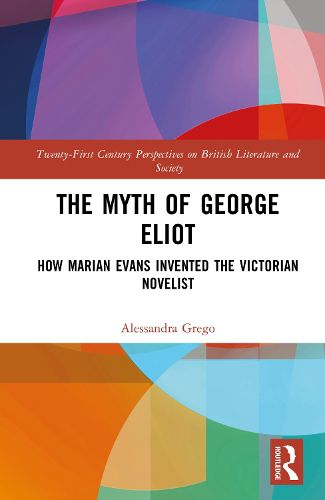Readings Newsletter
Become a Readings Member to make your shopping experience even easier.
Sign in or sign up for free!
You’re not far away from qualifying for FREE standard shipping within Australia
You’ve qualified for FREE standard shipping within Australia
The cart is loading…






George Eliot is a myth rather than a pseudonym. The writer Marian Evans invented the Victorian novelist as a character with a personality, a political view, and a style that was received enthusiastically by the expanding mid-century readership, and just as enthusiastically rejected by the new generation of writers who considered her the last Victorian novelist. "The Myth of George Eliot" proposes that the narrative style and structure of Evans's fiction is the result of her studies, her reflection on the role of literature in the political and ethical life of a nation, and on the novel as the site of a cooperation between writer and reader in the continuous work on inherited traditions. Neither the last Victorian nor the first Modernists, Evans emerges as an author reflecting on the power of collective narratives in an age of democracy.
$9.00 standard shipping within Australia
FREE standard shipping within Australia for orders over $100.00
Express & International shipping calculated at checkout
Stock availability can be subject to change without notice. We recommend calling the shop or contacting our online team to check availability of low stock items. Please see our Shopping Online page for more details.
George Eliot is a myth rather than a pseudonym. The writer Marian Evans invented the Victorian novelist as a character with a personality, a political view, and a style that was received enthusiastically by the expanding mid-century readership, and just as enthusiastically rejected by the new generation of writers who considered her the last Victorian novelist. "The Myth of George Eliot" proposes that the narrative style and structure of Evans's fiction is the result of her studies, her reflection on the role of literature in the political and ethical life of a nation, and on the novel as the site of a cooperation between writer and reader in the continuous work on inherited traditions. Neither the last Victorian nor the first Modernists, Evans emerges as an author reflecting on the power of collective narratives in an age of democracy.